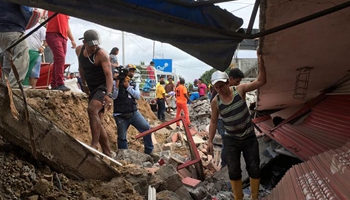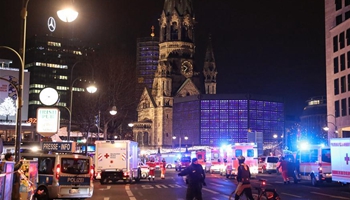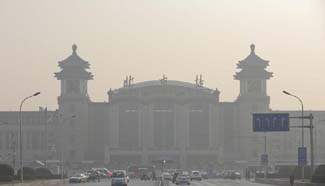BEIJING, Dec. 19 (Xinhua) -- An attempt by Beijing and Shanghai to classify smog as a natural disaster has brought a severe backlash from meteorologists and other scientists.
China's Meteorological Law and Meteorological Disaster Prevention Law include typhoons, torrential rain and hailstorms on the natural disaster list, but not smog.
Wang Zifa of the institute of atmospheric physics of the Chinese Academy of Sciences, claims that as smog is mainly caused by human activity it cannot be considered a natural disaster. If it were, authorities would not have to take full responsibility for it, he said.
Lyu Zhongmei, deputy director of the social and legal affairs committee of the National Committee of the Chinese People's Political Consultative Conference questioned why smog should be listed as meteorological disaster, when acid rain is not.
Smog is an environmental issue and is specified as such in many regulations, with relevant parties being held accountable, said Chang Jiwen, deputy director of the resources and environmental policy research institute of the Development Research Center of the State Council.
Officials with Beijing legal affairs committee said its attempt to reclassify smog would not change anything and the city would continue to manage smog relief.
Redefining smog could affect environmental lawsuits. Zhu Xiao of Renmin University of China believes that calling smog a natural disaster would add an unnecessary level of uncertainty to environmental lawsuits.
Smog settled on a large swathe of northern China, including Beijing, over the weekend with red alerts in over 20 cities, but is expected to clear by Thursday.
On Monday, the PM2.5 reading in many parts of northern China, mainly in Hebei and Henan, exceeded 500 micrograms per cubic meter. One reading in Shijiazhuang, capital of Hebei, exceeded 1,000 micrograms per cubic meter.
Smog forced the cancellation or delay of flights and closure of expressways. Beijing restricted vehicle access to the city.
Chai Fahe of the Chinese Research Academy of Environmental Sciences, said there is long way to go in tackling air pollution, and in many cases nothing but a cold front will help.










